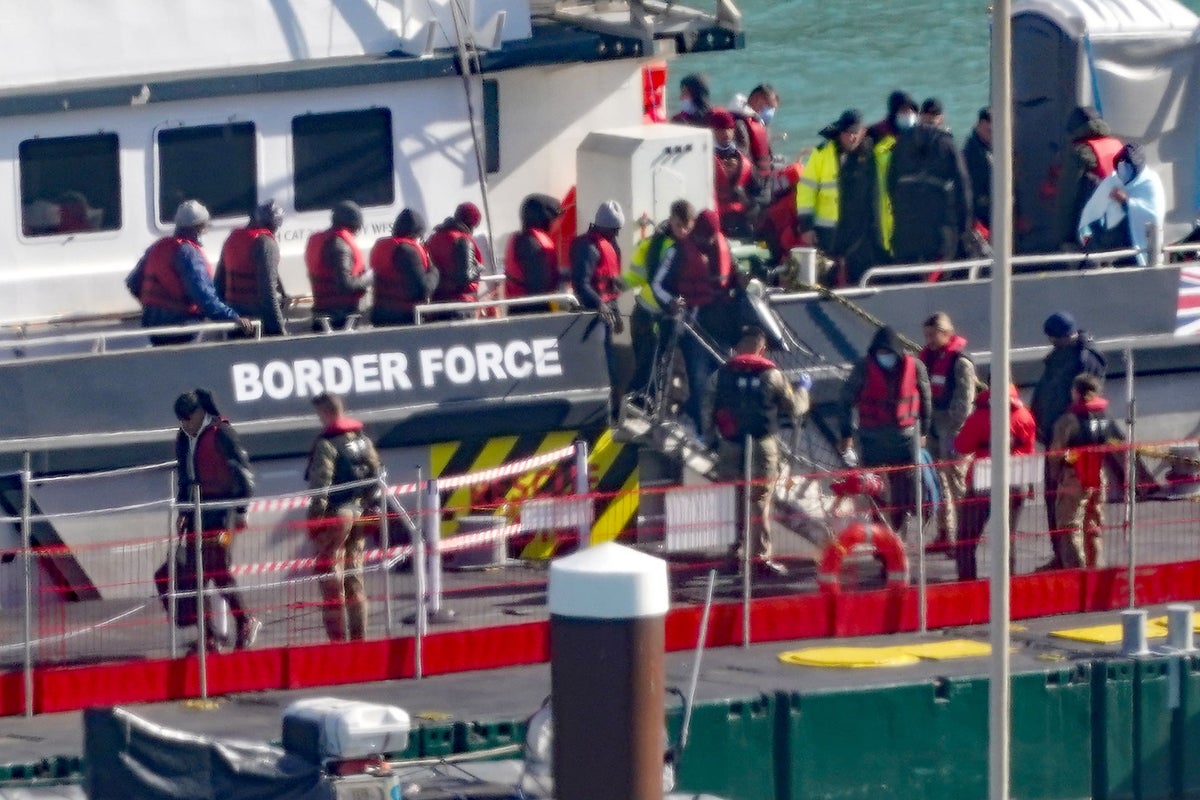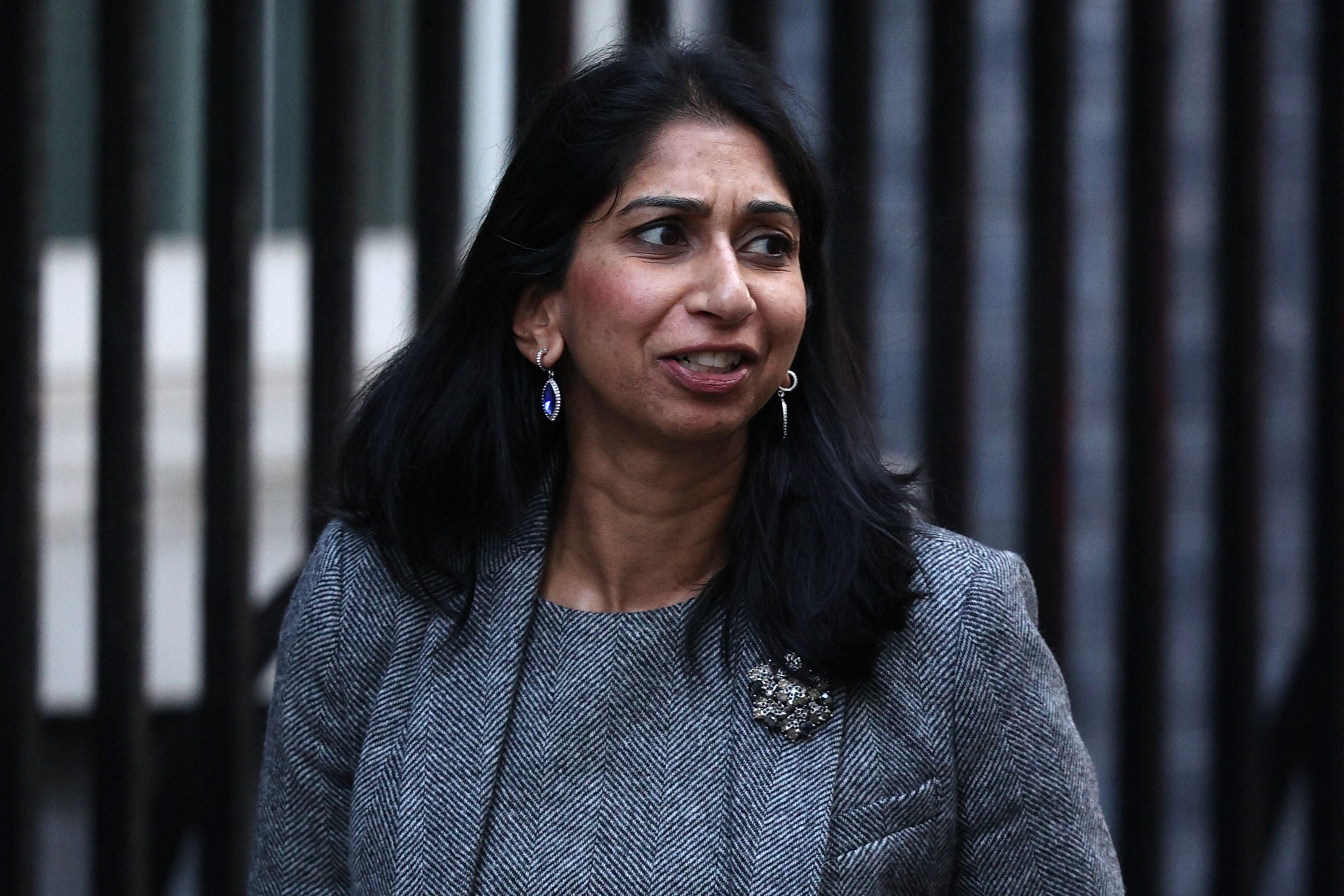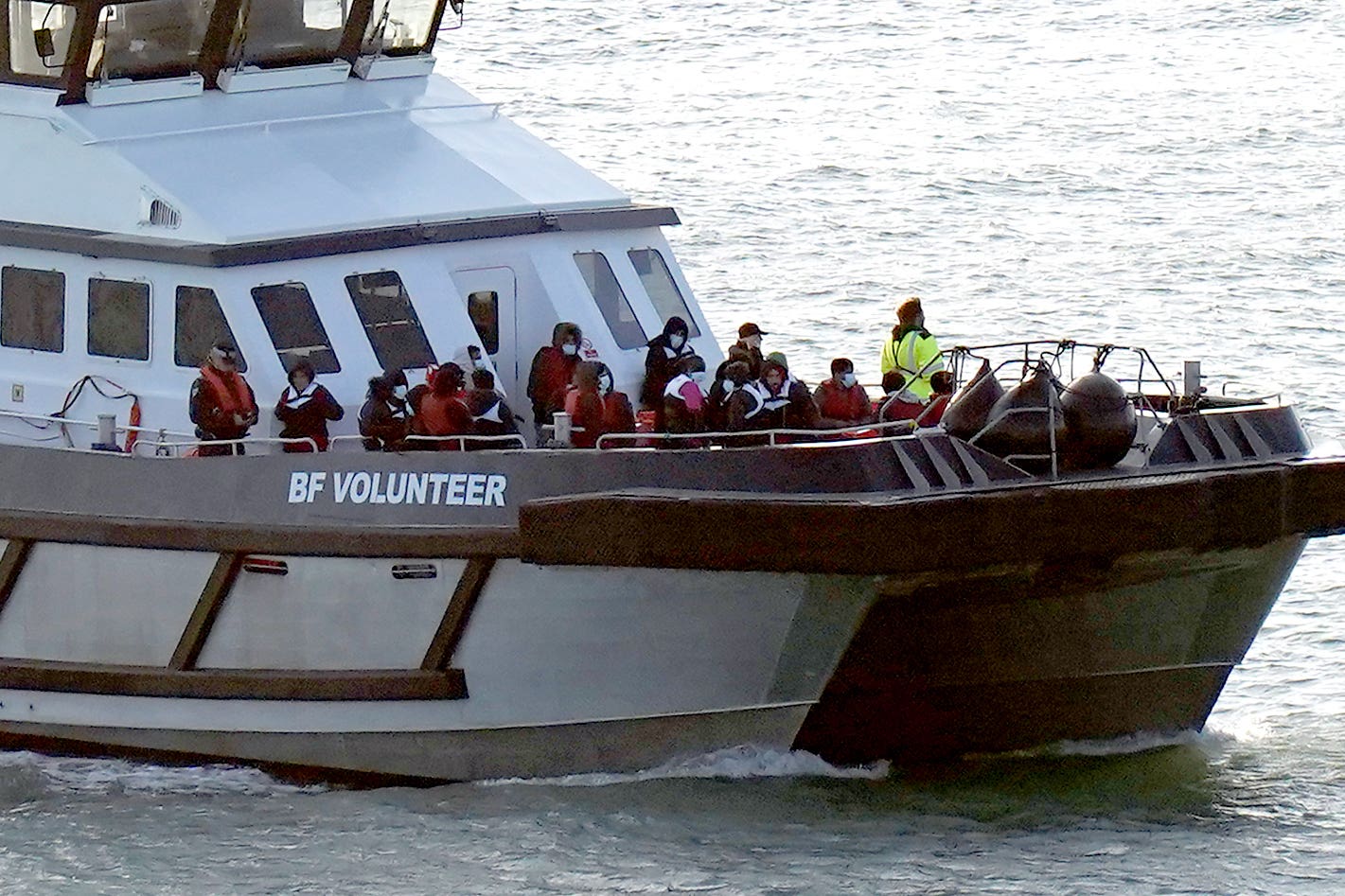
The Home Office has admitted that housing unaccompanied child asylum seekers in hotels is illegal but has no concrete plans to end the practice, a watchdog has revealed.
Official documents show that the government identified over a year ago that the policy amounted to the creation of unregulated children’s homes, which ministers banned in February 2021.
An entry on an internal “risk register” from August 2021 said: “Senior civil service confirmed we are running children’s homes and committing a criminal offence but relying on the defence of necessity.
“The mitigation is to stop doing this … advice is going to ministers.”
But a report by the Independent Chief Inspector of Borders and Immigration (ICIBI) found that hotels were still being used for children arriving alone on Channel boats, concluding: “Inspectors found limited evidence of progress on a concrete exit strategy from the use of hotels.”
The report showed that in 2021, more than 3,000 unaccompanied child asylum seekers were housed in hotels, including 725 under-16s.
One risk register entry accurately anticipated that unaccompanied child asylum seekers (UASC) would not be moved from hotels into local authority care in time for a surge in crossings this spring, which hit new records.
It said: “[If] Home Office continues to run UASC hotels without any statutory responsibility ... 9th Sept we will be breaking the law and continuing to run unregulated children’s homes and continuing to expose HO to illegal activity, burnout and trauma.”
The ICIBI report revealed a series of concerns over hotels, including the use of live-in staff who had not undergone criminal record checks and a “lack of professionalism” among contracted security guards.

During one incident in April, a far-right activist live streamed his visit to a hotel holding child refugees but security staff “remained in their cars” and did not intervene until the intruder entered the hotel.
The quality of food was raised as a concern, with children not being allowed to use plates, and they were not being given “any kind of formal or informal education”.
Inspectors found that the young asylum seekers were being dressed in “identical outfits” from Primark and Sports Direct, making them easily spotted by criminal gangs and sex predators.
The government prohibited the placement of children under 16 in “unregulated settings” in February 2021, and asylum hotels are not subject to statutory oversight by Ofsted.
The use of hotels for unaccompanied child asylum seekers began in July 2021 after a rise in Channel crossings saw Kent County Council declare that the safe capacity levels for its care services had been breached.
The ICIBI said government officials initially said the measure was for a “short-term interim basis” but no agency or department has taken statutory responsibility for the children.
A risk register dating from March this year rated the risk that the Home Office was “failing to meet statutory responsibility in looking after children” as black - the most serious level.
The same document said there was also a risk of “failing to effectively safeguard” children in hotels.
Another register from January highlighted additional concerns with healthcare provision, saying medical information was not being shared with councils “due to an identified gap in the process”.

The ICIBI report concluded: “As highlighted by the Home Office’s own risk register, and discussions with stakeholders, the Home Office is effectively operating unregistered young people’s homes.
“The defence of necessity likely applies, but the assertion of the operation as ‘temporary’ is less robust, especially as external oversight is absent, and viable, available, alternative solutions remain elusive.”
The watchdog visited four hotels for its inspection between March and May and sent the report to the former home secretary Priti Patel in June, but it was not published until Wednesday after long passing an eight-week publication deadline.
The ICIBI formally recommended that the Home Office starts delivering a “viable and sustainable exit strategy” stopping the use of hotels for unaccompanied child refugees within six months, but it was only partially accepted.
In an unusually short official response to the report, the Home Office said it would work “with the Department for Education and Local Authorities to build capacity to avoid the ongoing need for contingency accommodation as quickly as possible”.

The response did not address the internal assessments of illegality and only fully accepted one of four formal recommendations.
The Home Office has attempted to shorten the time unaccompanied child asylum seekers are held in hotels by making transfers to other local authorities mandatory, spreading the demand from Kent to other parts of the country.
But the ICIBI said that the most recent data showed that one in 10 were still spending more than a month in hotels before being moved into council care.
Chief inspector David Neal said the pace of change “appears slow” and did not take adequate account of the children’s vulnerability.
“This is not an area in which the Home Office should be operating - a clear cross-government approach is required,” he added.
“Although staff referred to the need to end the use of hotels, there was little in the way of concrete planning for this to be achieved and no timelines provided by the Home Office.”
Mr Neal said that a “crisis response” to rising Channel crossings had transitioned to a “business-as-usual operation” despite shortcomings in oversight and the provision of key services.
“A disjointed response at day one or even week one could be excused but at month 10 this is not acceptable,” he added.
“Senior leadership action is needed to unlock the sub-optimal ownership of this issue in order that these children and those who will keep on arriving over the next days and weeks receive a more effective service. In essence, a recognition of the enduring nature of the requirement is needed.”
A government spokesperson said the report had been published at the first available opportunity following parliamentary recess, the Queen’s death and new ministerial appointments.
A statement said there was “unprecedented strain” on Britain’s asylum system, adding: “The wellbeing of children in our care is our absolute priority and we are pleased that the ICIBI unanimously found the young people we accommodate reported feeling safe, happy and were treated with respect.
“The rise in dangerous small boat crossings means there are significant challenges on local authority care places. The government has had no alternative but to urgently use temporary hotels to give unaccompanied asylum-seeking children arriving in the UK a roof over their heads.
“We know we must do more and we are determined to stop the use of hotels for children. To do this we are working round the clock with councils across the UK to increase the number of long-term care placements available, with children on average being moved from hotels to local authority care within 15 days of arriving.”







